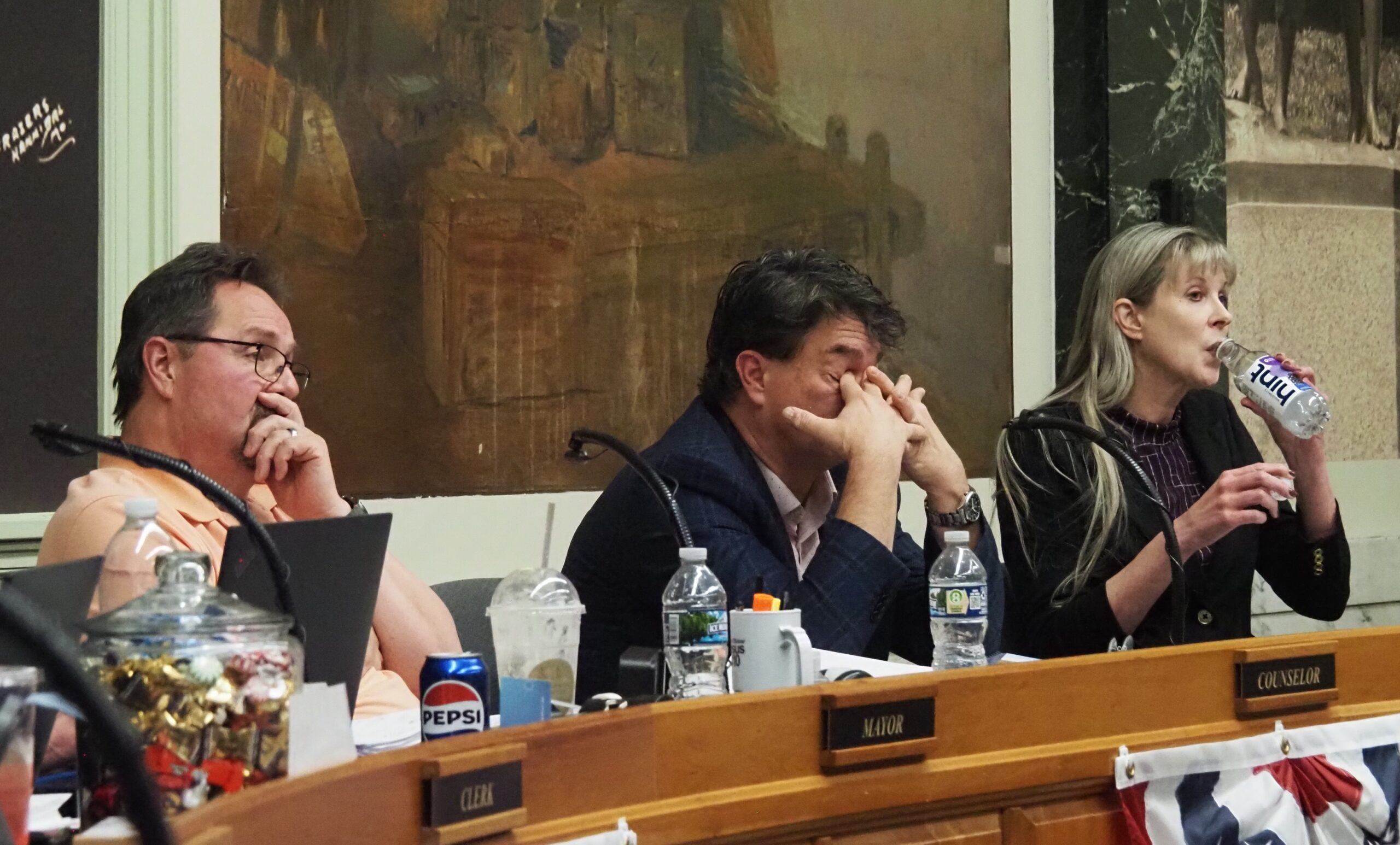Hannibal City Council sends recommendation to remove fluoride from city water supply to Board of Public Works

HANNIBAL, Mo. — The Hannibal City Council voted 4-1 to have fluoride removed from the city’s water supply. However, the resolution itself doesn’t have the authority to halt the addition of fluoride into the city’s water.
Instead, it simply recommends its removal to the Hannibal Board of Public Works.
“It is not an instruction,” City Attorney James Lemon explained. “It is putting it in their (HBPW) ballpark.”
Four council members voted in favor of the resolution: Scott Haycraft, 1st Ward; Mike Dobson, 2nd Ward; Charles Phillips, 4th Ward; and Nathan Munger, 6th Ward.
“Only because of the overwhelming results that I’ve gotten from the public — yes,” Dobson said.
Robert Koehn, 3rd Ward councilmember, was the lone vote against the resolution. (The 5th Ward seat is currently unoccupied following the resignation of Colin Welch last month.)
“I do not want (the fluoride) removed (from the city’s water),” Koehn said. “There’s not any proof that it does harm.”
Before the vote, Koehn shuffled through a stack of papers as he read of studies that found significant decreases in oral health in areas that had removed fluoride from water systems. One study was conducted in Hawaii, where “most public water systems are not fluoridated,” Koehn said. He said the study found “substantial dental health disparities” among children and adults.
Koehn also noted concerns with how studies that claimed to prove a harmful correlation between fluoridated water and human health were conducted.
“The findings (of a harmful correlation) were based on studies in non-U.S. countries, where some pregnant women and children were exposed to total amounts (of fluoride) higher than one and a half milligrams of fluoride per liter of drinking water,” Koehn said, referring to a study that claimed fluoride caused lower IQ levels in children.
“We can find studies that argue both sides,” Haycraft said. “There was a recent study — January 6th of this year — (that said) fluoride exposure and lower IQ scores are directly linked together with a 1.2 point drop due to the fluoride. The overconcentration, with the formulas (that) already have fluoride in them, the fluoride that’s added to the water then also naturally occurring fluoride, it’s just too much that’s getting in the system. We have too many chemicals that are exposed to our children as it is. Why not lessen one more?”
A review of the scientific literature published on the topic by the National Toxicology Program (NTP), a division of the U.S. Department of Health and Human Services, noted:
“The NTP monograph concluded, with moderate confidence, that higher levels of fluoride exposure, such as drinking water containing more than 1.5 milligrams of fluoride per liter, are associated with lower IQ in children. The NTP review was designed to evaluate total fluoride exposure from all sources and was not designed to evaluate the health effects of fluoridated drinking water alone. It is important to note that there were insufficient data to determine if the low fluoride level of 0.7 mg/L currently recommended for U.S. community water supplies has a negative effect on children’s IQ. The NTP found no evidence that fluoride exposure had adverse effects on adult cognition.”

Munger stated that in his research, no studies could be found against fluoride’s benefits to dental health. Like Haycraft, Munger said the issue was that, in combination with other fluoridated things entering into the body, fluoridated water exposed humans to too much fluoride.
“From the doctors that I’ve spoken with, for the most part, there’s fluoride in so many other things now — they’re getting it from their toothpaste, they’re getting it from other areas — much more than it was back in the 50s and even all the way up to, you know, more recent years,” Munger said. “But, with these studies we’ve been shown that there is a link from fluoride to so many other problems, my opinion —what I’ve seen through that — is the risk for problems is greater than the potential for benefit out of it.”
“Every study I have seen (that proves a harmful correlation between fluoride and human health) has been in third-world type countries, and you’re going to equate results from there to results we might have in the United States? These studies have been studied in Iran, Iraq, India, Canada, Mexico, China,” Koehn said.
“Do those places have the same level of access to fluoridated toothpaste and mouthwash?” Haycraft asked.
“Not like what we do,” Koehn said.
“Exactly,” Haycraft said.
A fact sheet on fluoride from the National Institute of Health details the various amounts of fluoride in water, food, dietary supplements, medications and dental products. The sheet said:
- “Only trace amounts of fluoride are naturally present in most foods, and most foods not prepared with fluoridated water provide less than 0.05 mg/100 g”
- “Estimated typical amounts of fluoride ingested daily from toothpaste are 0.1 mg to 0.25 mg for infants and children age 0 to 5 years, 0.2 to 0.3 mg for children age 6 to 12 years, and 0.1 mg for adults.”
Tabling the resolution was briefly considered. Councilmen did not discuss conducting a local study to determine if the removal of the fluoride was necessary before the council voting to recommend such actions be taken. It is unclear if all council members were provided with the same pieces of scientific literature to review before the vote.
The HBPW will still have hoops to jump through before the chemical can be removed from the water, including various compliance-related actions with state agencies and sufficiently informing the public.
In other council news:
- The council approved street closures for a bike show hosted by the American Legion Riders, Chapter 55, on June 14 from 9 a.m. to 4 p.m.;
- City Manager Lisa Peck approved the appointment of Cole Painter to the Board of Public Works for a term to expire in 2028;
- Mayor Barry Louderman approved the appointment of Linda Spaun to the Hannibal Library Board for a term to expire in 2026;
- Louderman recommended the appointment of Susan Dobson to the Employee Benefit Trust Board for a term to expire in 2028.
Miss Clipping Out Stories to Save for Later?
Click the Purchase Story button below to order a print of this story. We will print it for you on matte photo paper to keep forever.

